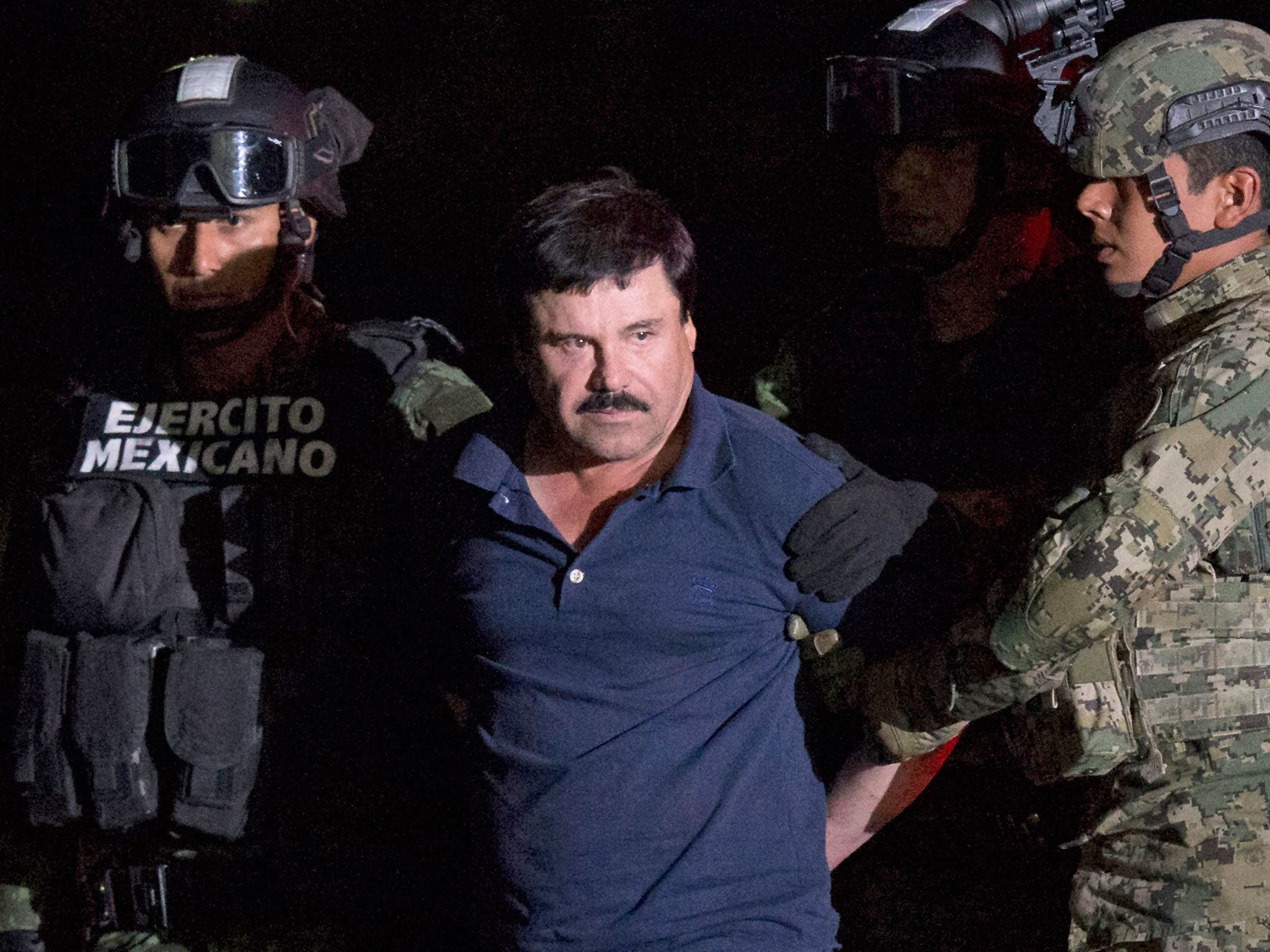El Chapo cleared for extradition to the US to face drug trafficking charges
The drug lord's lawyers have 30 days to appeal the ruling by Mexico's Foreign Relations Department

Your support helps us to tell the story
From reproductive rights to climate change to Big Tech, The Independent is on the ground when the story is developing. Whether it's investigating the financials of Elon Musk's pro-Trump PAC or producing our latest documentary, 'The A Word', which shines a light on the American women fighting for reproductive rights, we know how important it is to parse out the facts from the messaging.
At such a critical moment in US history, we need reporters on the ground. Your donation allows us to keep sending journalists to speak to both sides of the story.
The Independent is trusted by Americans across the entire political spectrum. And unlike many other quality news outlets, we choose not to lock Americans out of our reporting and analysis with paywalls. We believe quality journalism should be available to everyone, paid for by those who can afford it.
Your support makes all the difference.Mexico has approved the extradition of notorious drug lord Joaquin “El Chapo” Guzman to the US to face federal drug trafficking charges, almost five months since he was recaptured following an elaborate escape from a Mexican maximum-security prison.
Guzman’s lawyers have 30 days to appeal the extradition ruling, which means the Sinaloa cartel boss may not be transported across the border for several months. The Mexican Foreign Relations Department received a guarantee from the US that Guzman would not face capital punishment, the Associated Press reported. Mexico no longer has the death penalty.
Guzman, who is thought to be around 60 years old, escaped from Altiplano prison near Mexico City in July 2015, reportedly via a tunnel that led directly from beneath the shower in his cell to a building one mile beyond the walls. He was recaptured by Mexican marines in January at a hideout in Los Mochis, a city on the Pacific coast of Sinaloa, his home state.
At least 20 prison officials were arrested last year in connection with his escape, including the former head of the Mexican federal prison system and the former director of the Altiplano prison itself. The incident was a major embarrassment for the Mexican government and called into question whether the country’s prison system could guarantee his long-term detention. Earlier this month, Guzman was transferred by the Mexican authorities to a prison close to the US border in preparation for extradition.
El Chapo – whose nickname translates as “Shorty”, a reference to his 5’6” stature – is the feared boss of the powerful and ruthless Sinaloa cartel. He has now been imprisoned three times since his first arrest in 1993, and escaped twice: first in 2001, when he broke out of the maximum-security Puente Grande prison in Jalisco state. It was reported that he had escaped with the help of guards who hid him in a laundry cart, though that version of events is disputed. He was on the run between 2001 and 2014, when he was again arrested.
In 2013, Chicago designated Guzman its Public Enemy Number One, with federal agents saying his organisation supplied most of the drugs sold on the city’s streets, more than 2,000 miles from Sinaloa. Drug trafficking is widely blamed as the underlying cause of Chicago’s epidemic of street violence.
Earlier this week it was announced that Netflix and the Spanish-language TV network Univision are to co-produce a drama about the drug lord’s life, entitled El Chapo.
Join our commenting forum
Join thought-provoking conversations, follow other Independent readers and see their replies
Comments